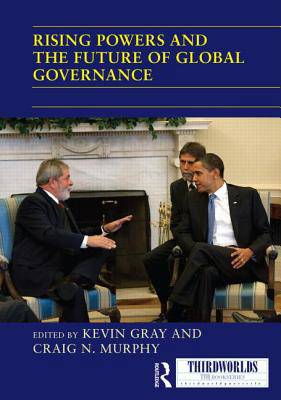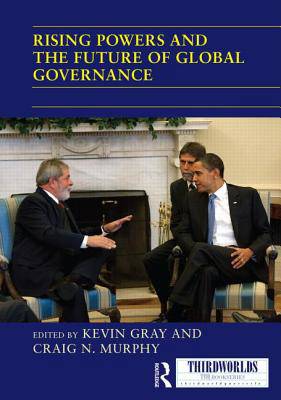
- Afhalen na 1 uur in een winkel met voorraad
- Gratis thuislevering in België vanaf € 30
- Ruim aanbod met 7 miljoen producten
- Afhalen na 1 uur in een winkel met voorraad
- Gratis thuislevering in België vanaf € 30
- Ruim aanbod met 7 miljoen producten
Rising Powers and the Future of Global Governance
Omschrijving
This volume contributes to the growing debate surrounding the impact that the rising powers may or may not be having on contemporary global political and economic governance. Through studies of Brazil, India, China, and other important developing countries within their respective regions such as Turkey and South Africa, we raise the question of the extent to which the challenge posed by the rising powers to global governance is likely to lead to an increase in democracy and social justice for the majority of the world's peoples. By addressing such questions, the volume explicitly seeks to raise the broader normative question of the implications of this emergent redistribution of economic and political power for the sustainability and legitimacy of the emerging 21st century system of global political and economic governance. Questions of democracy, legitimacy, and social justice are largely ignored or under-emphasised in many existing studies, and the aim of this collection of papers is to show that serious consideration of such questions provides important insights into the sustainability of the emerging global political economy and new forms of global governance.
This book was published as a special issue of Third World Quarterly.
Specificaties
Betrokkenen
- Uitgeverij:
Inhoud
- Aantal bladzijden:
- 192
- Taal:
- Engels
- Reeks:
Eigenschappen
- Productcode (EAN):
- 9780415714051
- Verschijningsdatum:
- 25/09/2013
- Uitvoering:
- Hardcover
- Formaat:
- Genaaid
- Afmetingen:
- 178 mm x 249 mm
- Gewicht:
- 498 g

Alleen bij Standaard Boekhandel
Beoordelingen
We publiceren alleen reviews die voldoen aan de voorwaarden voor reviews. Bekijk onze voorwaarden voor reviews.










